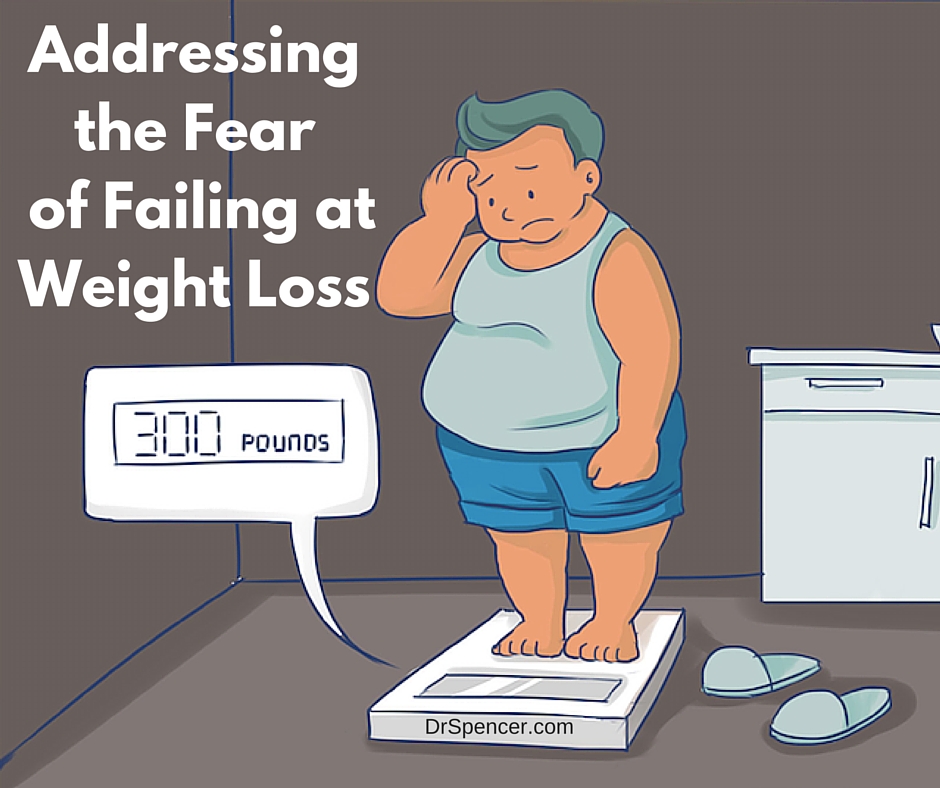They {individuals with obesity} feel a shame that they are failures and failure itself is such a powerful thing that it eats away at a person. How do you fuel positive change through guilt and shame and feeling like a failure?
– Dr. Yoni Freedhoff
In the weight-loss world, fear is almost as bad of a word as pudding. We fear the scale. We fear the doctor. We fear shopping for clothes. We fear the camera. We fear being embarrassed. The more we fear, the more we retreat—and the harder it is to climb out of whatever destructive habits we have. As someone who once was told I had child-bearing hips, I know that the fear is real, and I know it’s not easy to squash. But instead of letting fear steer us, we need to steer the fear.
– Ted Spinker
A quick google search of every diet program out there can make the prospect of finding the best weight loss plan seem overwhelming. The list includes the Atkins diet, baby food diet, best life diet, biggest loser diet, body for life diet, cabbage soup diet, cheaters diet, cookie diet, DASH diet, Dr. Phil’s Ultimate Weight Solution, Eat More Weigh Less diet, Eat this Not that!, Eat Right for your Diet Type diet, 5 Factor Diet, Flat Belly Diet, and even a French women don’t get fat diet. This is only a small fraction of all of the commercial diet plans out there.
Based on interviews with 76 individuals with obesity, researchers from Monash University found a few common themes amongst the participants. One of those themes was that “people living with obesity have been ‘socially conditioned’ to turn to diets for a cure for their obesity, and to blame themselves when diets fail”. Further interview research suggest that many people do try to diet and have done so multiple times in their lives only to gain their weight back. To quote Dr. Spencer Nadolsky in his book, the Fat Loss Prescription, “it is not your fault if you have gained weight and have not been able to lose it. Many factors are working against you”. An unsustainable diet plan is one of those factors. Not only do we tend to gain weight back but multiple failed diet attempts can have long term devastating effects on our confidence to try to lose weight again. To quote social psychologists Charles Carver and Michael Scheier:
“Because the environment often does not allow a permanent disengagement from the cycle of being unable to reduce discrepancies from ideal self and present self, the cycle continues: inability to attain higher order goals, awareness of that inability, and the negative feelings following from that awareness. All of this is further exacerbated by the fact that continued failure causes the expectancies of future failure to become more stable, leading to even lower likelihood of exerting sustained effort toward goals.”
Failure decreases the odds of giving 100% efforts in the future which sets people up for future failure. Without giving a true maximum effort, weight loss will be even more challenging than it already is. Unsustainable diets fuel the cycle of failure, negative emotions, expectancies of future failure, and lower future effort. The first thing we should do is to discontinue fad diets1. Rather, look at the key habits that other successful weight loss individuals have performed. The National Weight Control Registry is a database of members have lost an average of 33 kg (approximately 73 pounds) and maintained the loss for more than 5 years. These individuals report 1) engaging in high levels of physical activity; 2) eating a diet that is low in calories (around 1,800) and fat; 3) eating breakfast; 4) self-monitoring weight on a regular basis; 5) maintaining a consistent eating pattern; and 6) catching “slips” before they turn into larger regains. Aside from performing the key behaviors that have been shown to work, getting into a positive mindset for success is crucial.
Giving 100% effort is scary because it robs us of any excuses if we fail. However, the converse of this is that if you keep giving 100% effort you cannot fail because you are continually trying. Harvard Psychologist Ellen Langer discusses a process orientation which entails asking “How can I do it?” rather than, “Can I do it?”. In her book Mindfulness, Dr. Langer states:
“This orientation can be characterized in terms of the guiding principle that there are no failures, only ineffective solutions”
To put this into perspective, researchers estimate that a current smoker (on average2) would have to make nearly 30 attempts to quit before successfully quitting for 1 year. Think about that, 30 ineffective solutions, not failures. This ideology should also apply to weight loss. Stanford Psychology professor and author of the book Mindset: The new psychology of success Carol Dweck, tells a story of a talented musician which perfectly explains what I mean by fear of failure:
“Everything I was going through boiled down to fear. Fear of trying and failing…If you go to an audition and don’t really try, if you’re not really prepared, if you didn’t work as hard as you could have and you don’t win, you have an excuse. Nothing is harder than saying, “I gave it my all and it wasn’t good enough”.
In the past, I have written about how to start any new health behavior (https://drspencer.com/the-key-to-starting-any-exercise-or-diet-plan/) as well as the steps needed to implement your intentions to healthier behavior (https://drspencer.com/breaking-unhealthy-habits-with-this-simple-strategy/). These writings were meant to act as a collective story on how to change behavior. I believe that getting in the right mindset is the first step. Absolving yourself of the fear of failure and adopting a process mindset is a crucial part of being ready to give 100% effort in your weight loss goals.
References
1 Unless of course you feel that this is a sustainable course of action
2This is as an average of a population, rather than any one individual experience. Some people may take 1 attempt, some make take hundreds.
Carver CS & Scheier MF. Control theory: A useful conceptual framework for personality-social, clinical, and health psychology. Psychological Bulletin, 92(1): 111-135, 1982
Carol Dweck, Mindset: the new psychology of success
Ellen Langer: Mindfulness
Metzgar, C.J., Preston, A.G., Miller, D.L., & Nickols-Richardson, S.M. (2015). Factilitators and barriers to weight loss and weight loss maintenance: A qualitative exploration. Journal of Human Nutrition and Dietetics, 28, 593-603.
Thomas, S.L, Hyden, J., Karunaratne, A., Kausman, R., & Komesaroff, P.A. (2008). “They all work…when you stick to them”: A qualitative investigation of dieting, weight loss, and physical exercise, in obese individuals. Nutrition Journal, 7:34
Wing, RR & Phelan, S. (2005). Long term weight loss maintenance. The American Journal of Clinical Nutrition 82, 222-225.

